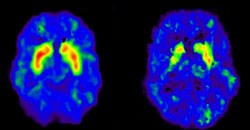
Top stories




Marketing & MediaWarner Bros. was “nice to have” but not at any price, says Netflix
Karabo Ledwaba 1 day


More news

Logistics & Transport
Maersk reroutes sailings around Africa amid Red Sea constraints
















In January this year TIME magazine led with a feature on the Mindful Revolution and how the practice of mindfulness is helping millions of Americans find peace in a stressed-out, digitally dependent culture.
In South Africa, the same benefits are available and this September, a public conference and retreat in Cape Town will help introduce South Africans to the research and theory, as well as the practice of mindfulness.
Organised by the Mindfulness Institute of South Africa (IMISA) in association with the University of Stellenbosch, several international experts will present on topics including contemplative neuroscience, the effects of mindfulness and compassion on the brain and the clinical application of mindfulness in cancer and health professional burnout.
Additionally, local speakers will offer insight into applications, adaptations, and research of mindfulness-based approaches currently employed in South Africa.
"For the first time we have the opportunity to gather, explore and examine how these approaches might be best utilised, adapted and researched in the South African context," says Dr Simon Whitesman, Chairperson of IMISA.

According to Dr Whitesman, the value of mindfulness-based interventions has been demonstrated extensively over the last 25 years in a variety of contexts.
"Ongoing research into mindfulness has shown that, even practising mindfulness for a short period each day can bring significant health benefits - both physical and mental," he says. "Mindfulness today is used by hundreds of health professionals across the world to help people with stress, pain, anxiety and depression, eating disorders, alcohol and other addictions. It's been found to reduce blood pressure, increase immune response, increase well-being, and positive mood."
Dr Whitesman adds that advances in neuroscience are catching up with what many people have experienced directly. "Brain imaging studies are now able to indicate the impact of mindfulness training on the brain. Neuroimaging studies after mindfulness training have been associated to changes in certain brain regions (the anterior cingulate cortex, insula, temporo-parietal junction, fronto-limbic network as well as default mode network structures). It seems that mindfulness training enhances a process of self-regulation when looking at this change."
Dr Whitesman says that while it is true that mindfulness has its roots in Buddhist philosophy, one does not have to be a Buddhist in order to practice mindfulness.
"Both fields of inquiry, neuroscience and modern psychology on the one hand, and Buddhism on the other hand, want to understand how humans function, why they suffer, and how to alleviate human suffering. So they are very similar in what they investigate: the human mind, the human condition."
He adds that anyone can learn how to be mindful at any age. "Although we've had a slower growth in mindfulness research and practice here in South Africa compared to Europe, the USA and the rest of the world, things are starting to gather momentum and we hope that the conference and retreat will bring fresh energy to the Mindful Revolution in this country.
The MINDFULNESS MATTERS 2-day conference and associated events are open to everyone, both health professionals and interested members of the public alike. There are two optional workshops ahead of the conference and a five-day retreat at Goudini after then conference for those who want to deepen their experience of what mindfulness is.
For more information or to register: click here.